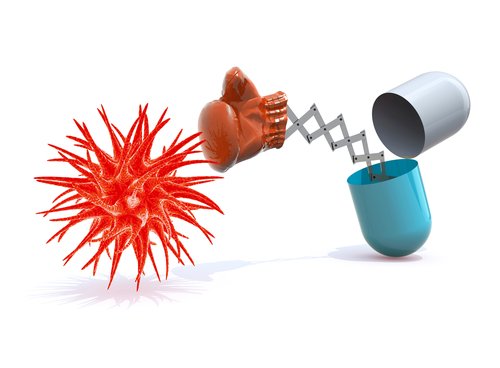Immunotherapy may be the way to tackle malignant pleural mesothelioma (MPM) after relapse, a new Phase 2 trial suggests. Using Opdivo (nivolumab) alone or in combination with Yervoy (ipilimumab) was found to inhibit tumor growth in nearly half of patients.
Results were more favorable when the combination therapy was used, suggesting the Opdivo-Yervoy combo holds promise for a cancer that lacks effective therapeutic options.
The findings were presented at the American Society of Clinical Oncology (ASCO) 2017 Annual Meeting June 2-6 in Chicago. The poster was titled “Second- or third-line nivolumab (Nivo) versus nivo plus ipilimumab (Ipi) in malignant pleural mesothelioma (MPM) patients: Results of the IFCT-1501 MAPS2 randomized phase II trial.”
“We’re seeing a second wave of immunotherapy with expansion of its use in more cancer types. This study shows that immunotherapy may represent an effective new treatment approach for mesothelioma, a disease for which we’ve long had too little to offer,” ASCO expert Michael S. Sabel, MD, said in a press release. “These results will serve as a building block to improve the outlook for patients with this cancer.”
The ongoing multicenter MAPS2 Phase 2 trial (NCT02716272) includes 125 adult patients with advanced mesothelioma. All participants had experienced disease progression after receiving one or two lines of chemotherapy, including at least first-line therapy with Alimta (pemetrexed) and platinum.
Patients were randomized to receive the anti-PD-1 Opdivo every two weeks either as a stand-alone treatment or in combination with the CTLA-4 inhibitor Yervoy, given every six weeks.
After 12 weeks of treatment, the disease control rate (DCR) in the Opdivo-only arm — the percentage of patients who experienced partial or complete response or stable disease — was 44%. In the combination arm, DCR was 50%.
The overall response rate, or the number of patients whose tumors shrank after treatment, was 16.7% in the Opdivo arm, and 25.9% in the combo arm.
These results demonstrated increased effectiveness when patients received immunotherapy treatments, since previous disease control rates reported for other treatments tested were less than 30%.
Serious adverse effects were more frequent in the combo therapy arm (18%) compared to the Opdivo-only regimen (10%). Three patients in the combo arm died from treatment-related effects.
“Our findings suggest that immunotherapy may provide new hope to patients with relapsed mesothelioma,” said lead study author Arnaud Scherpereel, an MD and PhD, head of the Pulmonary and Thoracic Oncology Department at the University Hospital of Lille in France.
“This randomized phase II trial may be enough to support the use of immune checkpoint inhibitors in this setting, but it is too early to conclude whether [Opdivo] alone or the combination of [Opdivo] and [Yervoy] is better,” he said.



Is this immunotherapy available in Canada?
Dear Rena,
This treatment regimen has not yet been approved for the treatment of mesothelima, and is still under clinical trial evaluation.
Is there any way to get the Opdivo drug (under compassionate grounds) for mesothelioma in Canada?